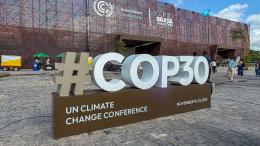While the climate crisis gets more dangerous to our planet and coal phase out is still a challenging work task in Germany, the regions of energy transition are working hard for a new image and model region to develop. Related to this, the importance of research centers and universities has set up new possibilities for the districts to implement science to shape this transition. In close cooperation with the mayor of Weißwasser and stakeholders on side and regional, the first implementation of UNU FLORES started in November 2021 by employing a research associate with duty station in Weißwasser, a city next to the open mining pit and power station in Lusatia which should be closed latest in 2038. To present Lusatia and its achievements as a model region, the research should take place in collaboration with other projects and strives to highlight the German role on global coal phase out and modelling pathways for other UN Member states. In addition a strong network, as well as an implementation and adaptation plan should lead to a science center as a branch office to work on coal phase out, the SDG´s and the Resource Nexus Approach.
Project
Lusatian Resources - Sustainable Development of Coal Mining Areas through Adaptation of the Resource Nexus and Considering Social Change (LuReNex)
The research investigates the German role on global coal phase out and modelling pathways for other UN Member states
Related content
News
Sugarcane Supercapacitors of the Future
Florencia Bernassani is laying the ground for electronics that are biodegradable and rely less on strategic minerals
News
Predicting Weight Loss After Bariatric Surgery: A Human‑Centered, Data‑Informed Approach
Shaping the future of obesity care through genetics, epigenetics, lifestyle insights, and the full inclusion of women in research.


